Copa Libertadores final: One of the great sporting events in a great rivalry that highlighted the worst in football
Three brilliant goals, one late missed equaliser and a length-of-the-pitch effort that sparked wild celebrations long into the night - and that was without taking in to account all the controversy of this relocated final
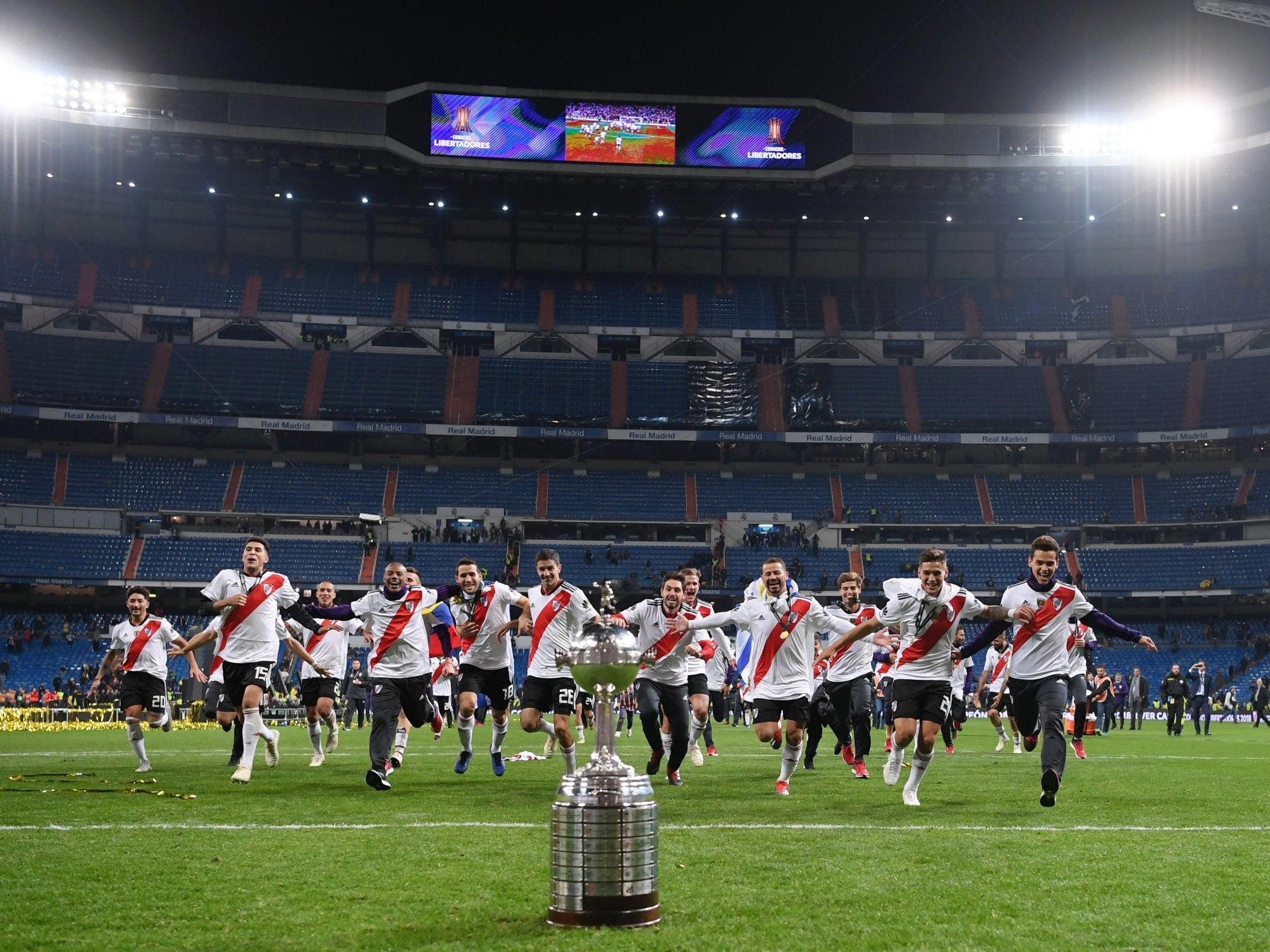
Your support helps us to tell the story
From reproductive rights to climate change to Big Tech, The Independent is on the ground when the story is developing. Whether it's investigating the financials of Elon Musk's pro-Trump PAC or producing our latest documentary, 'The A Word', which shines a light on the American women fighting for reproductive rights, we know how important it is to parse out the facts from the messaging.
At such a critical moment in US history, we need reporters on the ground. Your donation allows us to keep sending journalists to speak to both sides of the story.
The Independent is trusted by Americans across the entire political spectrum. And unlike many other quality news outlets, we choose not to lock Americans out of our reporting and analysis with paywalls. We believe quality journalism should be available to everyone, paid for by those who can afford it.
Your support makes all the difference.The Copa Libertadores trophy hadn’t long been lifted up, when the jubilant River Plate supporters had already come up with a chant mocking Boca Juniors. There was a stand-wide shushing, to reflect the silence from the other end of the Bernabeu, which was by that point empty.
That’s how it goes with this rivalry, that’s part of the intense feeling that played into the histrionic frenzy that first meant this match couldn’t have been played, but it could also have gone a very different way.
River fans were themselves silent in that portentous second when Leonardo Jara hit the post in the last minute of extra-time, before erupting as Gonzalo Martinez immediately went up the other end and scored.
It wasn’t as brilliant in quality as this restaged final’s other three goals, but did offer one of its most brilliant images. As Martinez ran straight towards the empty net, so many of his teammates ran off in different directions, knowing that was the win; that was making them the champions of South America; that meant the world.
That also somehow took the occasion to greater levels of spectacle. It really didn’t disappoint in that regard. And sure, it may not have been the highest quality, but it’s difficult to think of a sporting event so highly packed with virtually everything else. And that’s even separate to so much of the controversy that saw this match moved to Madrid, and then moved it in terms of the energy of a game of football.
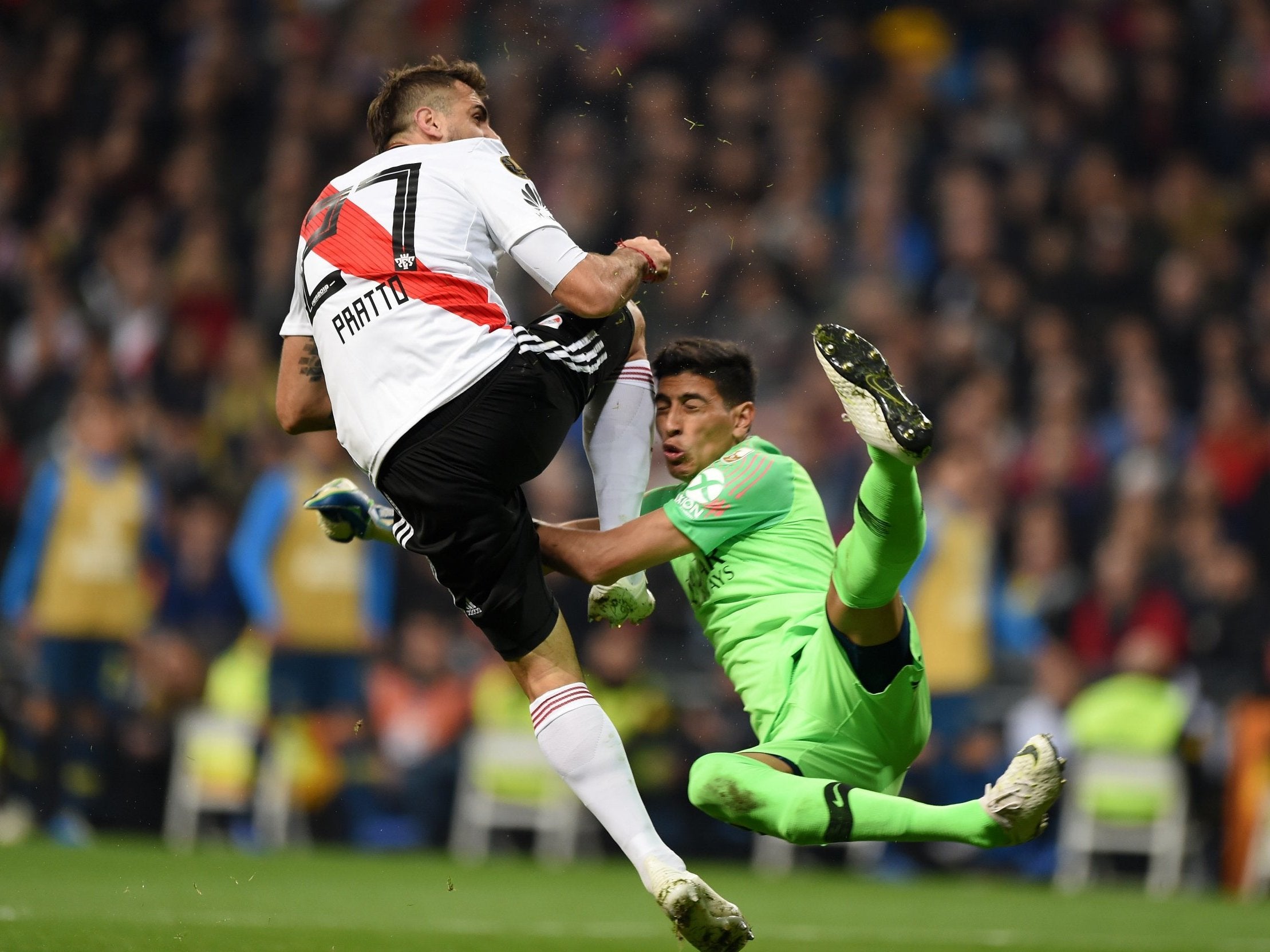
There were three genuinely divine but very different goals, a late equaliser denied by the post, another highly dramatic goal and a red card, as well as the gripping tension that so elevated all of this.
When you add in over a century of the biggest rivalry in football that led to that ruinous and potentially highly consequential attack on the Boca bus, and then the modern politics surrounding this – right up to the influence of Argentine president Mauricio Macri and the G20 influencing the staging of the game – it’s difficult to think of a sporting event that could have matched this as a story.
The wait, in many ways, was genuinely worth it.
This was one of the great sporting events, even if it highlighted some of the worst about football: the associated violence, the commercial greed.
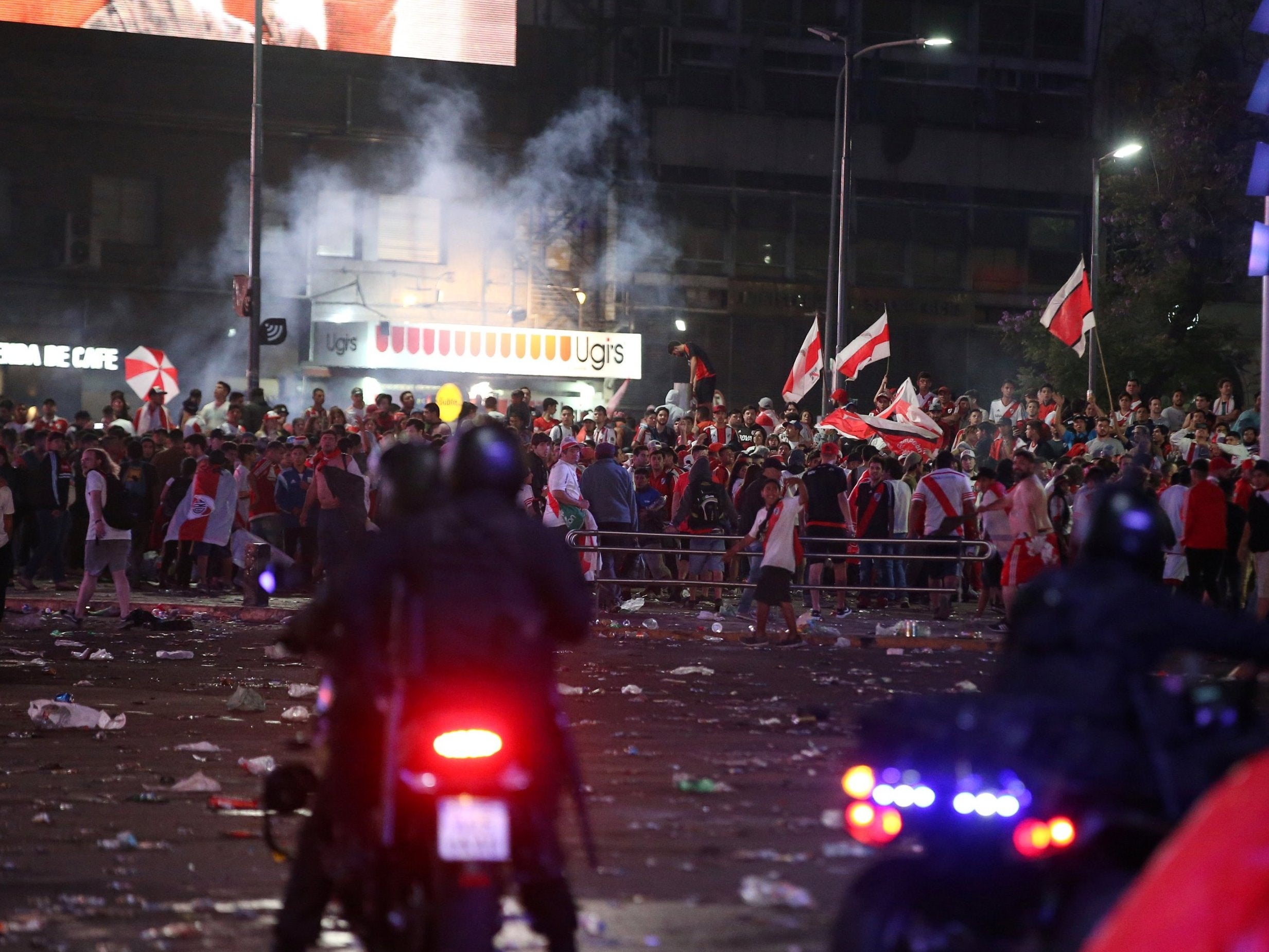
As regards the latter, River’s Leo Ponzio had the presence of mind even in victory to talk of how moving this match to Madrid – the competition named after South America’s liberators to the land of the imperialists – sets the game down a path few want. A precedent is now set. It is the example that will be raised when federations and clubs look for similar moves – like, for example, a Spanish league match in north America – although sources have argued that one massive reason Madrid wanted to stage the final was as a pre-emptive move in their bid to host the 2030 World Cup.
As regards the more immediate future, there’s the potential path of the victorious manager. Former Argentine playmaker Marcelo Gallardo couldn’t oversee the team from the bench due to his suspension, but his influence was overwhelming, and will have been watched by many top European clubs. He may well be back on this side of the Atlantic very quickly.
That is something else about this game.
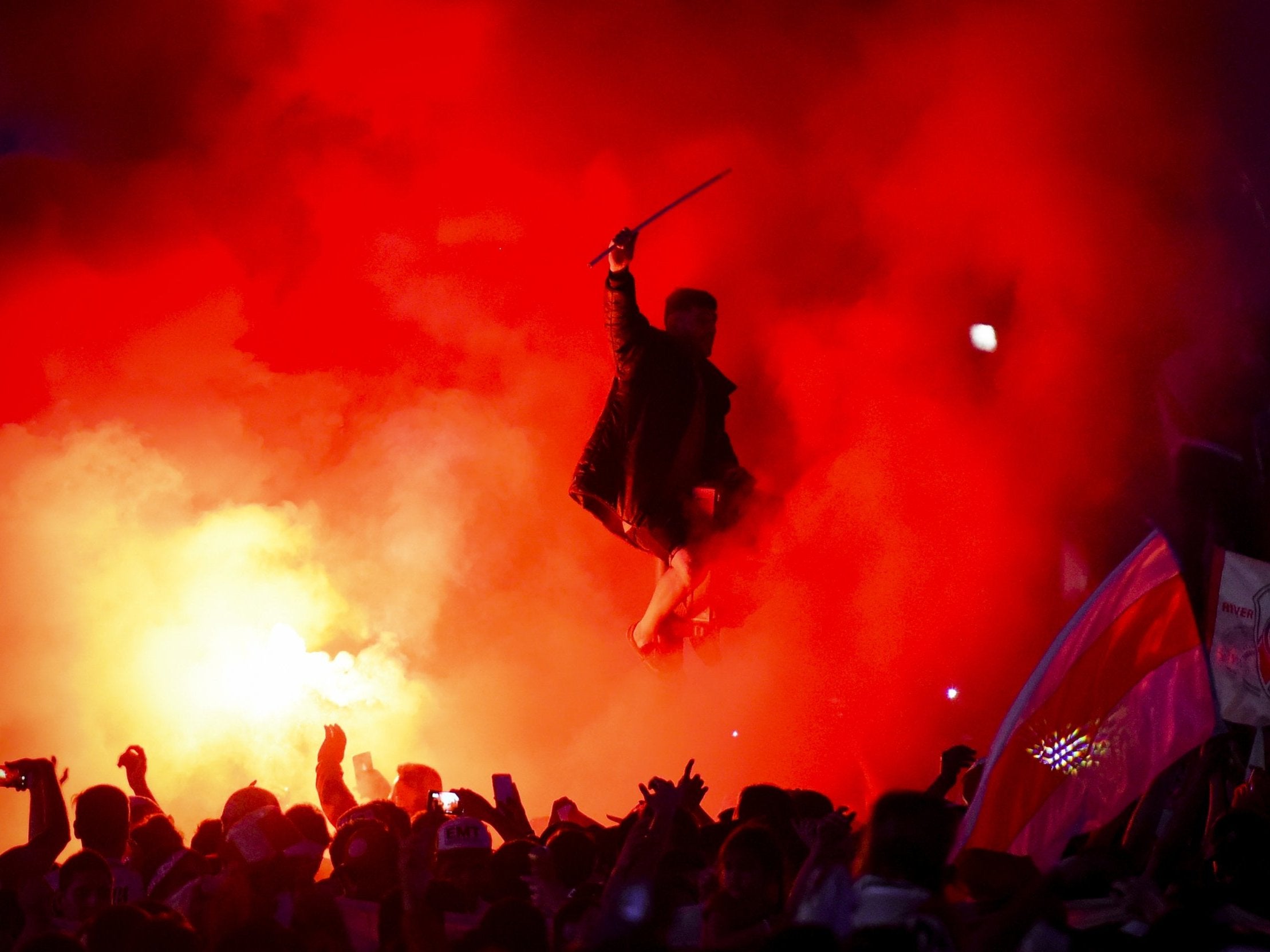
If there is a moral argument that River are not rightful winners due to what happened outside the Monumental, there can be little sporting argument they are not rightful winners.
All of the qualities that make them a fundamentally better team than Boca – particularly that proactive passing – were evident.
And yet there remains the potential twist, the possibility that this really isn’t over yet; that a final that was first confirmed two months ago could yet go in. There is still the lingering prospect of Boca’s appeal to the Court of Arbitration for Sport, from the Monumental match that was postponed, that could yet have a say in this matter.
Not for their own manager, Guillermo Barros Schelotto, though.
“For me, it’s finished,” he said.
“In a sporting sense, that’s it. River won.”
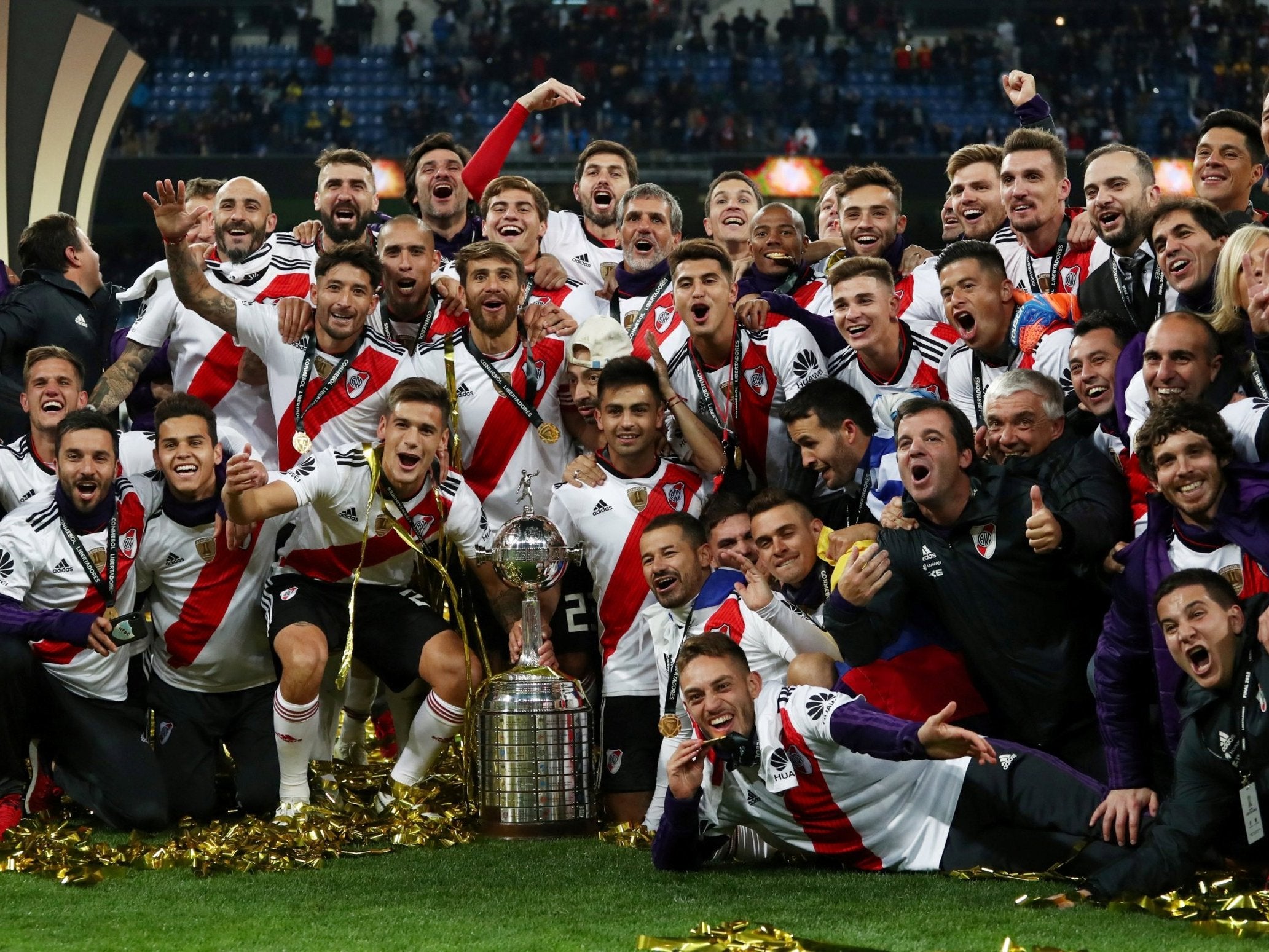
That came very close to not being the case. A second’s difference will now lead to decades of this rivalry being redefined.
River Plate didn’t just win. They claimed the ultimate win, in one of the ultimate sporting occasions.
Join our commenting forum
Join thought-provoking conversations, follow other Independent readers and see their replies
Comments